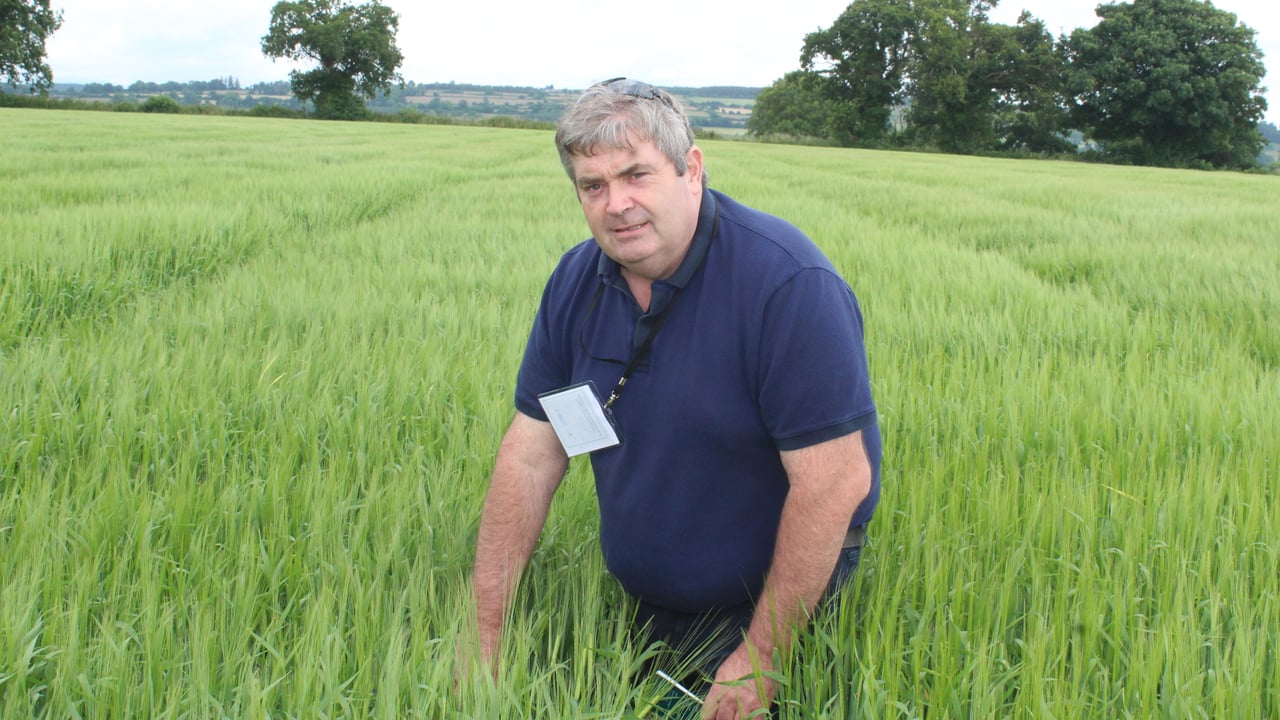Farmers 'will be relieved' to see drop of cultivation rule - McEvoy
Farmers "will be relieved" to see the proposal under the sixth Nitrates Action Programme (NAP) to drop the requirement for shallow cultivation, according to Kieran McEvoy.
The grain chairperson for the Irish Farmers' Association (IFA) was responding to the publication of a draft verion of the sixth NAP, which was put to public consultation this week.
Shallow cultivation on arable land was introduced under a measure in the fifth NAP to promote the growth of "green cover on Tillage ground" in selected counties where significant nitrogen load reductions were required.
As a result, shallow cultivation or sowing of a crop/catch crop had to take place within 10 days of the baling of straw or, where straw is chopped, within 10 days of harvest.
There was a requirement to retain 20-25% uncultivated cover to support seed eating birds during the winter period.
But the draft consultation document said that research shows the importance of tillage land to winter farmland birds, and that therefore it was proposed to remove the existing requirement for shallow cultivation in the new NAP.
Kieran McEvoy said the proposal to remove the obligation for shallow cultivation will be welcomed by tillage farmers.
"Since 2022, the mandatory requirement to cultivate at least 75% of stubble ground left over winter placed a burden of significant costs for fuel, labour and machinery," he said.
"Small farmers without access to appropriate stubble cultivation equipment are particularly affected," McEvoy added.
Earlier forms of the new NAP proposals had indicated an increase in the amount of area to be cultivated.
"Undoing the amendment exempting land destined for winter cropping from shallow cultivation would have been a retrograde step and one which would have caused a lot of confusion at farm level," the IFA grain chair said.
"IFA met with officials from the Nitrates and Biodiversity Division of [the Department of Agriculture, Food and the Marine] to highlight cost and safety issues that a further increase in cultivation would entail.
"Additionally, the proposals around restricting the timing of organic manures in autumn period were totally impractical and could have caused a number of negative unintended consequences for tillage and livestock farmers," McEvoy said.
"Under its submission to the Nitrates Action [Programme] consultation process, the IFA will be strongly advocating to remove shallow cultivation from any future legislation concerning nitrates," he added.
The IFA representative said that farmers will be "relieved to see that officials have taken their concerns on board and that a common-sense approach has prevailed".





